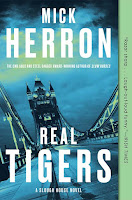14. Charlotte Wood, Stone Yard Devotional (2023) (6/22/25)
This quiet book is set somewhere in the countryside of New South Wales; the narrator, a woman of a certain age and an atheist, has left her husband and the big city to seek remove in a cloistered community near the town she grew up in. It begins as a few diary entries on the occasion of her first visit back, and part two becomes a series of observations and musings about life in the community upon her return and seemingly permanent residence (though she does not take vows) with the ten or so remaining sisters.A few events punctuate the otherwise quiet life there: a plague of mice, which becomes worse and worse, exacerbated by drought (climate change); and the return of the bones of a sister who left the community several decades before to work "in the world." The bones of Sister Jenny are accompanied by a social-activist sister, Helen Parry, not otherwise affiliated with the monastery, who also grew up in the neighboring town (and went to school with the narrator). The backdrop to all this is Covid, and the general shutdown—meaning Helen is obliged to stay on once she's returned the bones, and the community has few visitors. Helen mainly keeps to herself, but even that causes certain friction. Meanwhile, the sisters and our narrator do increasingly gruesome battle with the rodential hordes, as they wait (and wait) for permission to bury Sister Jenny.
That's it! At the end, the mice have mostly disappeared, the interment takes place (without permission, but never mind), and Helen departs.
Some readers might object that there's no story, but I enjoyed the slow pacing and the thoughtfulness as the narrator grapples with big questions: What is our purpose? Can we be forgiven for acts of callousness and neglect? Why are we here? We learn that the narrator was formerly an environmentalist, but she lost faith in the cause—indeed, upon the dissolution of her marriage, in everything. She may not find answers per se, but she begins to find some peace.
Here is a sample chapter (in full), opening with a quote (a not too tediously frequent device):
'We have to try to cure our faults by attention and not by will . . . Attention, taken to its highest degree, is the same thing as prayer. It presupposes faith and love. Absolutely unmixed attention is prayer. If we turn our mind towards the good, it is impossible that little by little the whole soul will not be attracted thereto in spite of itself.' Simon Weil.
Our Simone [one of the sisters] once took me to task over my 'sneering' about prayer. My notion of prayer was juvenile: forget this telephone line to God bullshit, she snapped, hot with impatience. It wasn't even about God, she said, which I thought must surely be blasphemous. Praying was a way to interrupt your own habitual thinking, she told me. It's admitting yourself into otherness, cracking open your prejudices. It's not chitchat; it's hard labour. She spoke as if all this were obvious. I longed to understand her. It feels always that I am on the edge of some comprehension here but never breaking through to the other side.
At night, just before sleep, is when I am closest to reaching it. In the morning, when the birds start, belief is as thin as the light.
And here's another quote, in a chapter that treats the idea that "if you don't life the life you are born for, it makes you ill," a remark made by Helen Parry at the breakfast table, to which one of the sisters, taking Helen's comment as condescending, responds quietly, "I was born for this life."
What I could not tolerate was the 'falling in love with Jesus' talk that I knew would come next, and it did. I find it nauseating; surely this life should be composed of something more sober than that. Something austere, and momentous, and powerful. Close attention, hard thinking. A wrestling, to subdue . . . what? Ego. The self. Hatred. Pride. But no, instead we have Sissy, and also Carmel, simpering that they are here because I fell in love with Jesus and want to live with him in heaven. As if they're talking about some teen idol crush. I have learned not to roll my eyes but there are times it is nearly impossible. Right at that moment, forcing myself to stay at the table, I was surprised to find myself meeting Helen Parry's glance, and more surprised still that both she and I held each other's gaze. Then she gave a tiny movement of her head in microscopic mimicry of Sissy's and Carmel's simpering, and I had to turn away not to laugh, in the process most completely failing to subdue my ego, the self, pride.
Wood has written seven works of fiction, three of non. I may seek her out again.




























